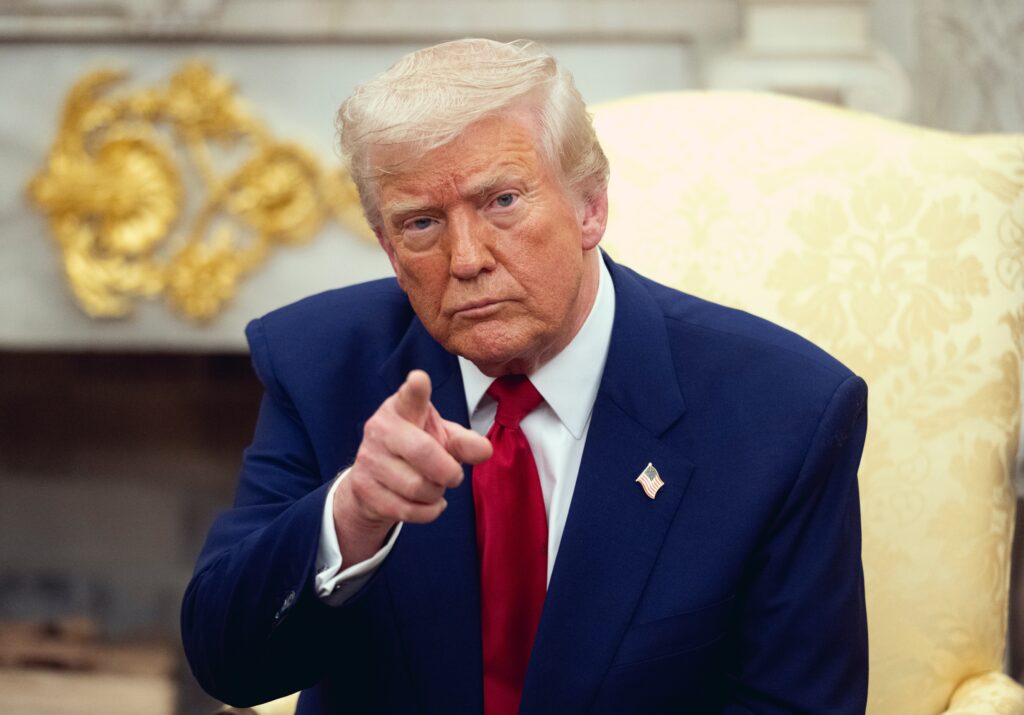A US appeals court has ruled that most tariffs introduced by Donald Trump were unlawful. The decision deals a serious blow to his trade policies and sets the stage for a showdown at the Supreme Court.
The judgement cancels Trump’s “reciprocal” tariffs against dozens of countries. It also blocks levies on China, Mexico and Canada.
Judges underline Congress holds tariff powers
In a 7-4 decision, the US Court of Appeals for the Federal Circuit declared the tariffs “invalid as contrary to law”.
The judges rejected Trump’s reliance on the International Emergency Economic Powers Act. They stressed that the authority to impose tariffs rests with Congress, not the president.
The ruling is scheduled to take effect on 14 October unless the Supreme Court intervenes.
Trump attacks ruling as partisan
Trump condemned the decision on Truth Social. He warned that overturning the tariffs would “literally destroy the United States”.
He accused the appeals court of political bias and argued that the tariffs kept America financially strong. Trump predicted the country would prevail in the end.
Emergency law argument falls flat
Trump had justified his actions under the IEEPA. He declared a trade emergency and claimed deficits posed a security threat.
The court rejected this reasoning. In its 127-page ruling, it wrote that the law “neither mentions tariffs nor sets safeguards to limit presidential authority”.
The judges stressed that Congress has always retained tariff powers and delegates them only through clear and explicit terms.
Legal challenges from states and businesses
The ruling followed two lawsuits filed by small businesses and a coalition of states. They targeted Trump’s April executive orders.
Those orders imposed a 10% tariff on nearly every country. They also added “reciprocal” tariffs on dozens more. Trump celebrated the day as America’s “liberation” from unfair trade.
The Court of International Trade had already found the tariffs unlawful earlier this year, but its ruling was paused during the appeal.
Tariffs on allies and China removed
The appeals court decision also invalidates tariffs on Canada, Mexico and China. Trump had argued they were needed to curb drug imports.
However, tariffs on steel and aluminium remain in force. They were imposed under a separate presidential authority.
White House issues economic warning
Ahead of the ruling, White House lawyers warned of catastrophic consequences. They claimed that striking down the tariffs could trigger a collapse similar to 1929.
They argued the US might fail to repay trillions already pledged by foreign governments. Such a crisis, they said, would weaken national security and cripple the economy.
The decision also places doubt on tariff agreements some countries negotiated with Washington.
Supreme Court battle ahead
The dispute now appears headed to the Supreme Court. The justices have recently limited presidential power when it lacked explicit congressional approval.
Under Joe Biden, the court struck down climate rules and blocked student debt forgiveness. Both rulings relied on the “major questions doctrine”.
The Supreme Court must now decide whether Trump’s tariff program was executive overreach or lawful presidential authority.
Conservative justices could decide the outcome
Trump’s defeat came in a court with only three Republican appointees among eleven judges.
The Supreme Court presents a different balance. Six of its nine justices are conservatives, including three appointed by Trump himself.
That majority could prove decisive in shaping a ruling that may redefine presidential power over trade.



